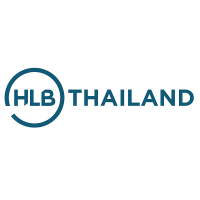
Thailand’s long-term resident visa program or LTR visa for short, aims to encourage foreign nationals to stay long term, relocate permanently, or do business in Thailand.
The long-term resident visa will be offered to four categories of foreigners: wealthy global citizens, wealthy pensioners, work-from-Thailand professionals, and highly-skilled professionals.
The visa will provide a range of substantial tax and non-tax benefits such as a 10-year renewable visa, permission to work in Thailand via a digital work permit, 90-day reporting replaced by annual reporting, exemption from re-entry permit requirements, and the highly appealing 17% personal income tax rate exclusively offered to highly-skilled professionals, to name a few.
TABLE OF CONTENTS
Qualifying for a Work-from-Thailand professional visa
Taxation of a work-from-Thailand professional visa holder
Foreign employer tax considerations
Exceptions to the general definition
New developments in international tax law
Working remotely in Thailand
The COVID-19 pandemic has undeniably changed the world’s business landscape, as we continue to experience unprecedented disruptions in the economy globally.
During its height, enterprises were forced to either reduce their office staff levels or temporarily close their operations or offices and relegate their personnel to work from home, in light of travel and social distancing restrictions. The pandemic accelerated trends that have been a long time coming: that is digitization of workplaces and the platform economy, the expansion of remote and flexible work, and also virtual education.
Flexible working arrangements are now here to stay. Businesses are realizing too that by leveraging technology they can access talent across the globe in a hybrid working world.
As thousands of companies transition to working remotely, employees are now given options by their employers to a remote/office hybrid scheme, to work from home, or to work from anywhere—a trend bolstered by the fact that several countries are re-opening their borders in an effort to kickstart their depressed tourism industry.
In response to the new mode of working, the long-term resident visa for work-from-Thailand professionals focuses on attracting remote workers to relocate to Thailand to work. The visa will allow remote workers the flexibility to travel to and from Thailand as they wish; they do not need to relocate to Thailand on a permanent basis.
Thailand ranks number one on Club Med’s index of the best places and countries around the world to become a digital nomad.
Thailand was a hub for backpackers and digital nomads even before the pandemic, attracted to its pristine beaches, interactive local culture, amazing cuisine, and relatively affordable cost of living. It is no wonder that it is one of the most attractive places to work remotely nowadays. And since 1 July 2022, Thailand’s Centre of COVID-19 Situation Administration (CCSA) approved the removal of the Thailand Pass registration and the US$10,000 health insurance requirement for foreign visitors to the country.
Qualifying for a Work-from-Thailand professional visa
The qualifications for a work-from-Thailand professional visa cover four areas, namely personal income, work experience, the financial status of your foreign employer and health insurance. Full details of the qualifications for the work-from-Thailand professional visa can be found here.
Digital nomads may be disappointed to see that the bar is set quite high to qualify for a work-from-Thailand professional visa.
For example, the foreign employer of the remote worker must have one of the following characteristics in order to qualify:
- A public company listed on the Stock Exchange in any country.
- A private company that has been in operation for at least 3 years and has total combined revenue of more than USD 150 million in the last 3 years.
Planning to work remotely in Thailand
While the idea of working remotely in Thailand is definitely appealing, it is important to be aware of the local tax regulations and employment laws in order to avoid the risk of incurring additional tax obligations, and your remote working adventure losing its luster.
Work permits
With few exceptions, foreigners will require a work permit to work in Thailand.
As you would expect, a work-from-Thailand professional visa holder can easily apply for and receive a digital work permit to work for their foreign employer in Thailand. The processing fee is 3,000 Baht per year to maintain a digital work permit.
Work-from-Thailand professional visa holders can also obtain a long-term resident visa for their spouse, if they are legally married. With an LTR visa, a spouse wishing to work in the Kingdom can also apply for a work permit. The spouse can be employed in any occupation that is not reserved exclusively for Thai nationals.
Taxation of a work-from-Thailand professional visa holder
Working abroad, you will need to consider your obligations to pay tax in your home country as well as in Thailand.
With few exceptions, a foreign remote worker will be liable to personal income tax in Thailand in respect of employment exercised in Thailand, regardless of whether such income is paid in or outside Thailand and regardless of whether or not the individual is a Thai resident.
The personal income tax rates range from 5-35% are as follows:
| Taxable Income per year (THB) | Tax Rate (%) |
|---|---|
| 0 to 150,000 | Exempt |
| 150,001 to 300,000 | 5 |
| 300,001 to 500,000 | 10 |
| 500,001 to 750,000 | 15 |
| 750,001 to 1,000,000 | 20 |
| 1,000,001 to 2,000,000 | 25 |
| 2,000,001 to 5,000,000 | 30 |
| Over 5,000,000 | 35 |
Tax Residency
Under Thailand’s tax laws, anyone who is present for an aggregate period of 180 days or more in the Kingdom in any given calendar year is considered a tax resident of Thailand. The tax consequences of becoming a tax resident of Thailand is mainly in respect of income from sources outside Thailand.
If you are a tax resident of Thailand, foreign-sourced income, which includes business income from employment, rental income, interest, dividends, royalties, capital gains, etc., that is paid, brought in, or remitted into Thailand within the same calendar year would be subjected to Thai income tax.
For example, if a foreigner working remotely in Thailand is a tax resident of Thailand and receives dividend income in his bank account overseas in 2022 and remits the same to his Thailand bank account in the same year, such income shall be subject to income tax.
The income would not be subject to income tax if it was never remitted into Thailand or remitted into Thailand after the 2022 year.
To avoid becoming a tax resident in respect of a tax year, you would simply need to spend less than 180 days in Thailand in that year.
Double tax agreements (DTA)
Another critical matter for a foreigner looking to work remotely in Thailand is to consider if their home country has a double tax agreement with Thailand.
Double taxation occurs when tax is imposed on the same income source by two or more different jurisdictions and is usually triggered when an individual or an entity operates in more than one country. The primary aim of double tax agreements is to eliminate the risk of double taxation, and revolves around the concepts of income-sourcing rights and the existence of permanent establishments.
Thailand has double tax agreements with many countries and jurisdictions including Australia, China, France, Germany, Hong Kong, Japan, United Kingdom, United States and Singapore. Double taxation is avoided by allowing a tax credit in the resident country or by providing a tax exemption.
The general rule for the taxation of employment income under a DTA is that the income is taxable in the country where the employment is actually exercised i.e. where the employee is physically present when performing the activities for which the employment income is paid.
A general exception applies to this rule that covers all individuals rendering services in the course of employment. There are three conditions normally prescribed in a DTA that must be satisfied for the remuneration to qualify for the exemption. In general, the three conditions require
- The employee is present in Thailand for less than 183 days or similar in the relevant period
- The employer is not a tax resident of Thailand
- The remuneration is not borne by a permanent establishment of the employer in Thailand.
If the conditions in an applicable DTA are satisfied i.e. the DTA of the country which the employee is a tax resident, then the employee will not be liable to personal income tax in Thailand on their income from employment exercised in Thailand.
It is possible that work-from-Thailand professional visa holders, working remotely in Thailand for a foreign employer for short periods of time, fall under this exception. This is an area where professional advice should be sought from a tax advisor familiar with Thailand’s tax laws and double tax agreements. Get in touch with us for a free initial consultation.
Foreign employer tax considerations
Foreign employers with employees working remotely in Thailand will also need to consider their Thailand tax obligations.
The Thailand Revenue Department has not issued any special regulations and exemptions from taxation for foreign employers with staff working in Thailand under a work-from-Thailand professional visa.
Gleaning from the Revenue Code, it is very easy to create a risk of a taxable presence in Thailand.
For example, if a foreign company has an employee, a representative, or a go-between to carry on business in Thailand and thereby derives income or gains in Thailand, such company shall be deemed carrying on business in Thailand for corporate income tax purposes and shall be subject to tax in so far as the said income or gains are concerned.
The Revenue Code does not stipulate a minimum period of time that an employee must spend in Thailand before they could be deemed to create a taxable presence for their foreign employer.
This is where a DTA again may come in handy to limit the chances of creating a taxable presence in Thailand. Under a DTA, generally speaking, if a foreign enterprise happens to derive income from activities performed in Thailand but does not have a “permanent establishment” in the country, the business profits from such activity would not be taxable in Thailand.
Permanent establishments
So what is a permanent establishment exactly?
The Organization for Economic Co-operation and Development (OECD) in its model double tax agreement generally defines a permanent establishment as a fixed place through which the business of an enterprise is wholly or partly carried on. Although Thailand is not a member of the OECD, many of its existing tax treaties follow this basic definition with respect to permanent establishments.
Thailand cannot tax the business profits of a company that is tax resident in a country/jurisdiction that has a DTA with Thailand, unless the company is carrying on business in Thailand through a permanent establishment, as defined under the applicable DTA. The term “ business profits” also has its own meaning and in general does not include income like interest, dividends and royalties that are taxable under other provisions of the DTA.
Every DTA will contain an article devoted to defining what is a permanent establishment.
The place of business must be a “fixed” one and therefore should have a certain location and degree of permanency i.e. it is not of a purely temporary nature.
For example, the DTA between Thailand and the United States provides that a fixed place of business that prima facie constitutes a permanent establishment includes a place of management, a branch, and office, among others.
A DTA may also include a clause regarding the rendering of services in Thailand over a period of time that will be deemed a permanent establishment.
Under the DTA with the United States for example, the furnishing of services in Thailand, including consultancy services, by a US enterprise through employees or other personnel engaged by the enterprise for such purpose, may constitute a permanent establishment in Thailand if activities of that nature continue (for the same or a connected project) within Thailand for period aggregating more than 90 days within any 12-month period. A permanent establishment shall not exist in any taxable year in which such services are rendered in Thailand for a period aggregating less than 30 days in that taxable year.
Dependent agents
Aside from the fixed place of business test, another factor to consider is the so-called dependent agent test.
A foreign employer could be treated as having a permanent establishment in Thailand if it has employees acting for it to conclude contracts or playing the principal role leading to the conclusion of contracts, even if it may not have a fixed place of business in Thailand.
Exceptions to the general definition
A DTA with Thailand will normally contain a list of business activities which when carried on through a fixed place of business, are not sufficient for these places to constitute a permanent establishment.
The list will be formulated on the premise that if the nature of the activities performed through a fixed place of business are only preparatory or auxiliary in character, they shall not constitute a taxable permanent establishment.
For example, the representative office of a foreign company in Thailand, which is only allowed to carry on limited activities in Thailand on behalf of its head office overseas, would fall under this provision.
This is an area that requires judgement of the facts and an careful analysis and interpretation of the exceptions. It may often not be clear cut whether or not the exception to the general definition can be applied to avoid creating a taxable presence.
In the face of the unique restrictions placed on travelling by the Covid pandemic, the OECD issued a guidance stating that employees temporarily working from home or in a place outside the jurisdiction of their employer, should not create permanent establishments as this lacks a substantial degree of permanency. This was concluded on the premise of COVID-19 restrictions, which should be no longer applicable now that cross-border travel is possible again in most countries.
New developments in international law
In July 2022, Thailand concluded its ratification of the Multilateral Convention to Implement Tax Treaty Related Measures to Prevent Base Erosion and Profit Shifting (Multilateral Instrument or MLI) which intends to update existing DTA measures and implement international tax rules from the OECD.
The MLI will apply alongside Thailand’s existing double tax agreements for the purpose of preventing tax avoidance by foreign enterprises operating in Thailand.
Key features of the MLI include tax-treaty measures to prevent treaty abuse, improve dispute resolutions, neutralize the effects of hybrid mismatch arrangements, and to prevent the artificial avoidance of permanent establishment status—specifically a call to prevent the use of certain common tax avoidance strategies that circumvent the existing permanent establishment definitions.
Managing risks
As the Thailand Revenue Department does not provide any special tax privileges for foreigners working in Thailand on a work-from-Thailand professional visa, it will be important for a foreign employer to understand whether an employee working remotely in Thailand will create a taxable presence for them in Thailand.
Hopefully the employer is tax resident in a country that has a DTA with Thailand otherwise only the very wide taxing provisions of the Revenue Code will apply.
Under a DTA, there will be the fixed place of business test to consider e.g. would a long-term stay in a “home office” in Thailand give rise to a sufficient degree of permanence to create a taxable presence? If the employee is involved in concluding contacts in Thailand, then a fixed place of business may not be required to give rise to a taxable presence.
It might be possible that the activities of the employee are only of a preparatory or auxiliary nature and do not result in a taxable presence.
The employee’s length of stay in Thailand may also dictate whether it may create a permanent establishment. In some cases, it might be advisable for a foreign employee working remotely in Thailand to stay in the country for short periods of time only, and to strictly confine their activities to solely within the scope of their foreign work and avoid conducting local business in any way that can be deemed as a strong enough connection to establish a permanent establishment risk under the relevant tax treaty.
Taxpayers may request a ruling from the Revenue Department regarding their liability to taxation if they are not sure how the law should be applied or wish to obtain certainty about their tax obligations.
Private rulings given to a taxpayer are sometimes redacted and published by the Revenue Department. Although such published rulings are not law, they are a useful guide to the Revenue Department’s view on how it interprets the law when applied to the facts presented by the taxpayer.
Ultimately, it would be best for both the individual and their employer to communicate with their tax department and/or to consult with a Thai tax specialist, to assess whether the activities in Thailand will trigger a permanent establishment risk in Thailand. Get in touch with us for a free initial consultation about your liability to taxation in Thailand.




